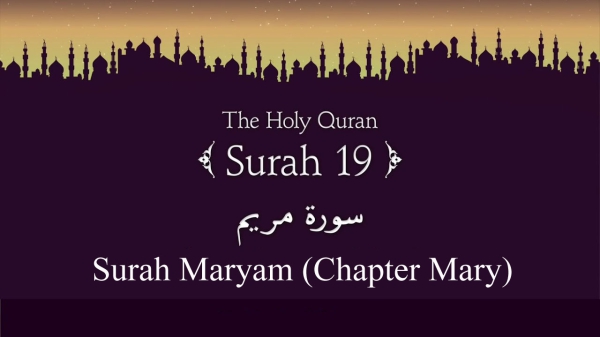Surah Maryam, a Meccan surah with 98 verses, is named after Maryam (Mary), the mother of Prophet Isa (Jesus). It emphasizes the themes of Allah’s mercy, miraculous events, monotheism (Tawhid), prophethood, and the reality of the Hereafter. Below is a comprehensive 500-word summary of the surah.
1. The Story of Prophet Zakariya
The surah begins with the story of Prophet Zakariya, an elderly man longing for an heir. Despite his advanced age and his wife’s barrenness, Zakariya prays to Allah for a righteous child. Allah responds to his prayer with the good news of Yahya (John the Baptist), a prophet endowed with wisdom, purity, and piety. This miraculous birth is a testament to Allah’s power and mercy.
2. The Story of Maryam and Isa
The surah transitions to the story of Maryam (Mary), a symbol of chastity and devotion. It recounts the miraculous birth of her son, Prophet Isa (Jesus), without a father. When Maryam retreats to a remote place, the Angel Jibreel (Gabriel) appears to inform her of Allah’s decree. Despite her initial fear and confusion, she accepts Allah’s will. Isa’s birth is a sign of Allah’s power and a manifestation of His command, “Be, and it is.”
When Maryam returns to her people with the infant Isa, they accuse her of immorality. In defense, baby Isa miraculously speaks from the cradle, proclaiming himself as a servant of Allah, a prophet, and a bearer of divine blessings. This event underscores Isa’s human nature and refutes the claim of his divinity.
3. Narratives of Other Prophets
The surah then highlights the stories of other prophets to reinforce the central message of monotheism and Allah’s mercy. These include:
• Prophet Ibrahim (Abraham): His unwavering faith is demonstrated in his rejection of idolatry and his confrontation with his father and people who worship idols. Ibrahim’s trust in Allah and his migration symbolize complete submission to the divine will.
• Prophet Musa (Moses): Musa is portrayed as a chosen servant and a messenger of Allah, entrusted with leading his people and delivering Allah’s message.
• Prophet Ismail (Ishmael): Ismail’s dedication to prayer and charity is emphasized, serving as an example of righteous living.
• Prophet Idris (Enoch): He is praised for his truthfulness and exalted status with Allah.
These narratives highlight the consistency of Allah’s message throughout history, delivered by prophets who called their people to worship Allah alone.
4. Warning and Promise
The surah emphasizes the transient nature of worldly life and the certainty of resurrection and accountability. It warns against arrogance and disbelief, reminding the disbelievers of the consequences of rejecting Allah’s guidance. At the same time, it reassures the believers of their reward in Paradise, where they will experience eternal peace and joy.
5. The Reality of Monotheism
A core theme of the surah is the affirmation of Tawhid (the oneness of Allah). It refutes false claims about Isa’s divinity and reminds humanity that Allah has no partners or offspring. Isa is presented as a prophet and servant of Allah, not divine.
Surah Maryam concludes with a reminder of Allah’s mercy, justice, and the importance of faith in the Hereafter. It inspires believers to trust Allah’s plan, remain steadfast in worship, and reflect on the examples of the righteous.









